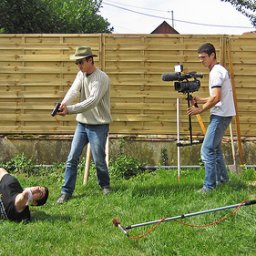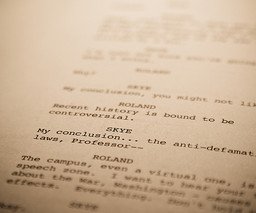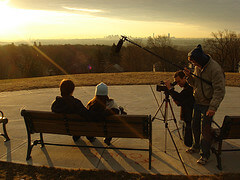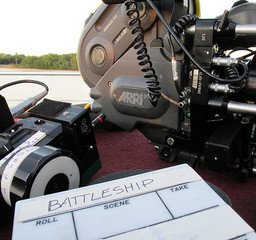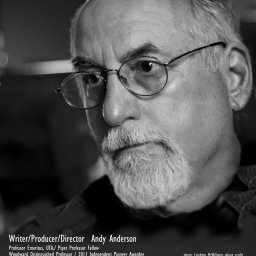With the many responsibilities that film directors shoulder, it can be hard to define what makes a great director. Pinpointing exactly what constitutes a well-directed film can sometimes be even harder. However, there are some films that were undeniably shaped and elevated by masterful directing. Whether they eschewed convention and embraced techniques that were groundbreaking for their time, beautifully and subtly told a complex story, or simply evoked passionate and connecting responses from viewers, these classic films set directing standards, and are worthy of critical viewing by any aspiring director. For the purpose of this list, “classic” films were defined as those over 25 years old.
1. Citizen Kane (1941) – Orson Welles In addition to making his directorial debut, Orson Welles also produced, co-wrote, and starred in Citizen Kane, giving him a great deal of creative freedom. A number of Welles’ directing techniques used in this film were groundbreaking at the time; in addition to using unorthodox lighting techniques to create tension and emotion, Welles also abandoned the traditional linear storyline, instead using multiple (and sometimes unreliable) narrators to tell the story through flashbacks. [Nominated: Academy Award for Best Director]
2. A Streetcar Named Desire (1951) – Elia Kazan Elia Kazan was noted for drawing exceptional dramatic performances out of his actors, and the iconic performances of Marlon Brando as Stanley Kowalski and Vivian Leigh as Blanche DuBois in A Streetcar Named Desire are testament to this. Kazan also employed innovative set techniques to tell the story, such as physically moving the set walls in closer on Blanche as she heads towards insanity. [Nominated: Academy Award for Best Director]
3. Psycho (1960) – Alfred Hitchcock There is a reason that Psycho is considered a pioneering film in the psychological thriller genre; Hitchcock’s techniques – particularly with filming styles and camera usage – created an intense setting that drew in and thrilled audiences. The majority of the movie was filmed with 50mm lenses on 35mm cameras, a trick that mimics human vision and gives the viewer a voyeuristic feel. In the iconic shower scene, 77 different camera angles are used, including extreme close-ups. In addition, Hitchcock gave the film’s stars the freedom to improvise their roles and characters as they interpreted them, so long as their improvisation didn’t require the cameras to move. [Nominated: Academy Award for Best Director]
4. The Graduate (1967) – Mike Nichols One of the most important responsibilities a director has is selecting the right cast for a film; after all, the best directing, writing, and producing in the world won’t make a difference if the actors chosen aren’t right for their roles. When casting for The Graduate, Mike Nichols rejected Robert Redford’s request for the lead role of Benjamin Braddock, instead casting a young and relatively unknown theater actor: Dustin Hoffman. The attention to detail that Nichols gave this film is apparent, from his dedication to finding the perfect cast and the ideal writer (eventually hiring a comedic actor and story editor with no screenwriting experience) to the carefully framed camerawork that isolates and emphasizes the complicated nuances of the characters. [Won: Academy Award for Best Director]
5. Annie Hall (1977) – Woody Allen Though undoubtedly a comedy, Annie Hall included dramatic elements, representing a more complex film and Woody Allen’s first step away from pure comedy as a director. The film – which Allen also wrote and starred in – was based loosely on his real life romance with Diane Keaton. Through the storytelling, Allen is able to give the audience insight into the complex feelings and emotions the director felt about his own failed romance. He allows the emotional setting to be largely revealed directly through the characters’ own dialog, whether through monologues, conversations, or intimate therapy sessions, requiring uncommonly long shot lengths. [Won: Academy Award for Best Director]
Still Have More Questions?
KD Conservatory has acting, musical theatre, and film production programs to help prepare students for careers in the entertainment industry. Contact us with any of your questions, or check us out on Facebook for ongoing updates and information!



